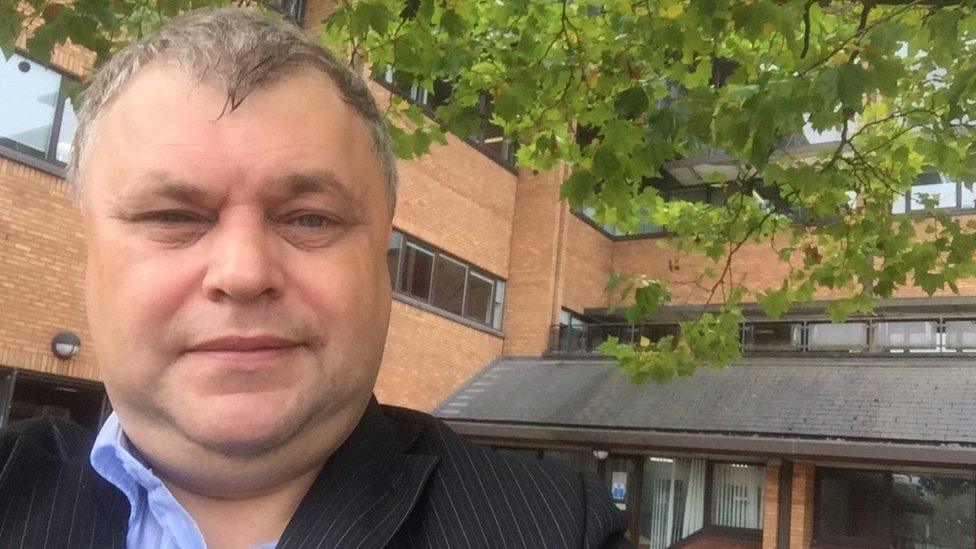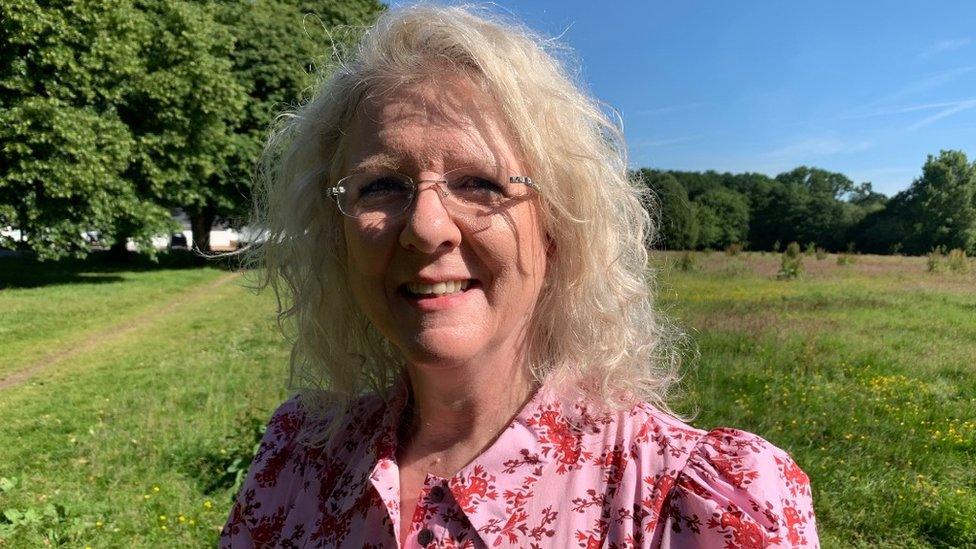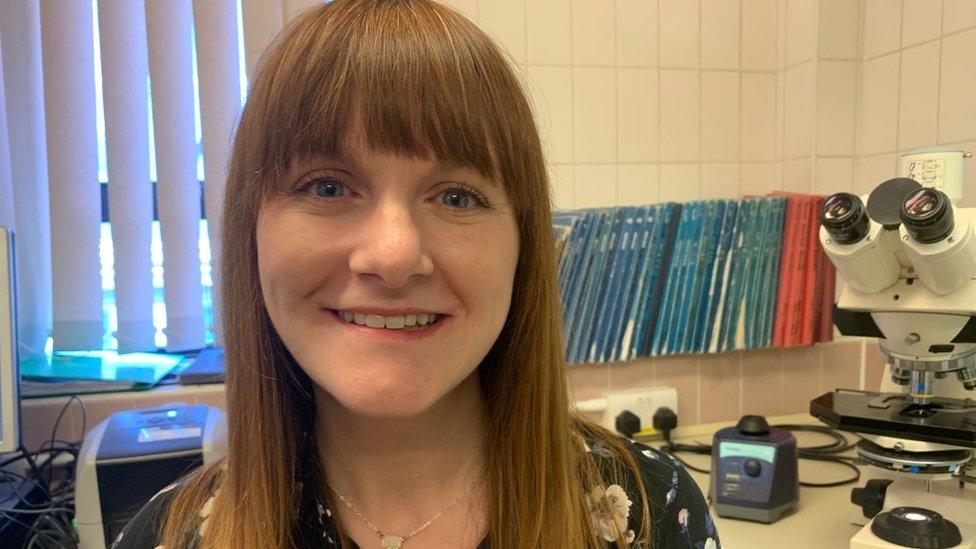Mental health: Genetics service to help patients and families
- Published

Marc Flagg - before his diagnosis - struggled with various aspects of life, without knowing why
People in Wales affected by mental health issues will be able to benefit from a new genetics service.
Individuals with certain genetic alterations have a much greater risk of developing serious conditions such as schizophrenia, according to research.
The new NHS Wales service, the first of its kind in the UK, offers patients and families access to counselling and, where appropriate, genetic testing.
It is hoped this will lead to better care and treatments.
A greater understanding of how small changes in the DNA can influence a person's susceptibility to mental ill-health is another aim of the service.
About 30,000 people in Wales, or one in 100, are affected by severe mental illnesses.
A person's experiences and environment have the greatest influence but in a small number of cases alterations in someone's DNA can also play a part, specialists believe.

Counselling and other forms of therapy will be offered to patients and families
Marc Flagg's mental health was affected by questions about his own situation.
The lecturer from Cardiff couldn't understand why throughout his life he felt different, saying: "It's kind of 'outside of' and you don't feel you're part of the social networks or structure of society."
Despite doing well in his O-levels at 16, the prospect of going to university frightened him and he failed his A-levels without "giving them any attention".
"I kind of half wanted to fail them, so I wouldn't have to go to university," he added.
It was years later when his son was given a diagnosis of autism that he started thinking about himself and professionals suggested he could also have a potential diagnosis.
'Very cathartic experience'
Autism isn't considered a mental health condition, but understanding more about his own situation helped him immeasurably.
"I very rarely get upset and show emotion but I must say I was very upset and cried. It was a very cathartic experience.
"I remember having the diagnosis and going outside, saying 'thank you very much' to the professor and I went outside and I just burst into tears.
"My wife was with me and I just felt a relief and a sense that I could give myself permission to say that I'm not to blame for a lot of the troubles I've had in terms of my feeling of being outside and loss."
Marc's mental health support has improved considerably and he now receives the support he needs.

Dr Annie Procter, a consultant clinical geneticist, leads the new service
Consultant clinical geneticist Dr Annie Procter, the clinical lead for the new All-Wales Psychiatric Genomics Service, external, said: "There is no doubt a person's experience of life in general has the greatest impact on their mental well-being... but we have known for some years that certain genetic alterations can confer considerable risk of psychiatric disorders".
Cardiff University research, for example, has identified key genes linked to schizophrenia, external.
"People with conditions such as schizophrenia die 20 years earlier than their peers. We know that this is often from physical health problems," said Dr Procter.
"If you have one of these genetic alterations, research has shown this confers a 30-fold greater risk of developing mental health disorders but also the related physical health problems.
"For this group of people not only can [the service] help them understand the position they're in, it can also offer interventions and follow-ups which might improve their quality of life."
How will the service work?
Patients and families can be referred by local mental health or genetics teams.
Examples of people who might be considered include those with psychiatric disorders whose treatment is not proving to be effective as hoped, individuals worried about a family history of mental health disorders or people with known genetic risk factors wanting advice about possible risks to future children.
The service is supported by psychiatrists, geneticists, genetic counsellors, genetic scientists, psychologists and pharmacists, as well as academic researchers.
If appropriate, individuals can be offered a genetic test which could help pinpoint small alterations in their DNA code - known as copy number variants, external (CNVs).
It is hoped the work could also help identify more genetic alterations which may be linked to mental ill-health.

Clinical scientist Jade Heath has been involved in the project
Dr Jade Heath of the All Wales Medical Genomics Service (AWMGS) is a clinical scientist involved with the new service.
"We have a lot of experience in identifying these types of CNVs for more physical health disorders," she said.
"So it's really exciting to be able to put this experience we have into giving access to mental health illness and individuals who've struggled for access to genetic testing in the past."
Dr Procter said it is known CNVs "confer risk" but not known how.
"And sometimes in the world of genetics, it takes one person with a particular genetic alteration that unlocks so much... so it might be in five or 10 years time, we might have developed a treatment we haven't even thought about now.
"But it's not just about testing, it's about counselling and having an informed conversation about the quality of life they want to aspire to.
"There are some people and professionals that are concerned that we're trying to root out mental health genes... this is not what this is about.
"This is about choice and to learn and understand more about your personal situation."

FIGHT FOR YOUR RIGHTS: X-Ray returns and they've got your back
SPOTLIGHT ON THE NHS: Is Covid masking a bigger problem with our health service?

- Published18 August 2021

- Published16 June 2022
